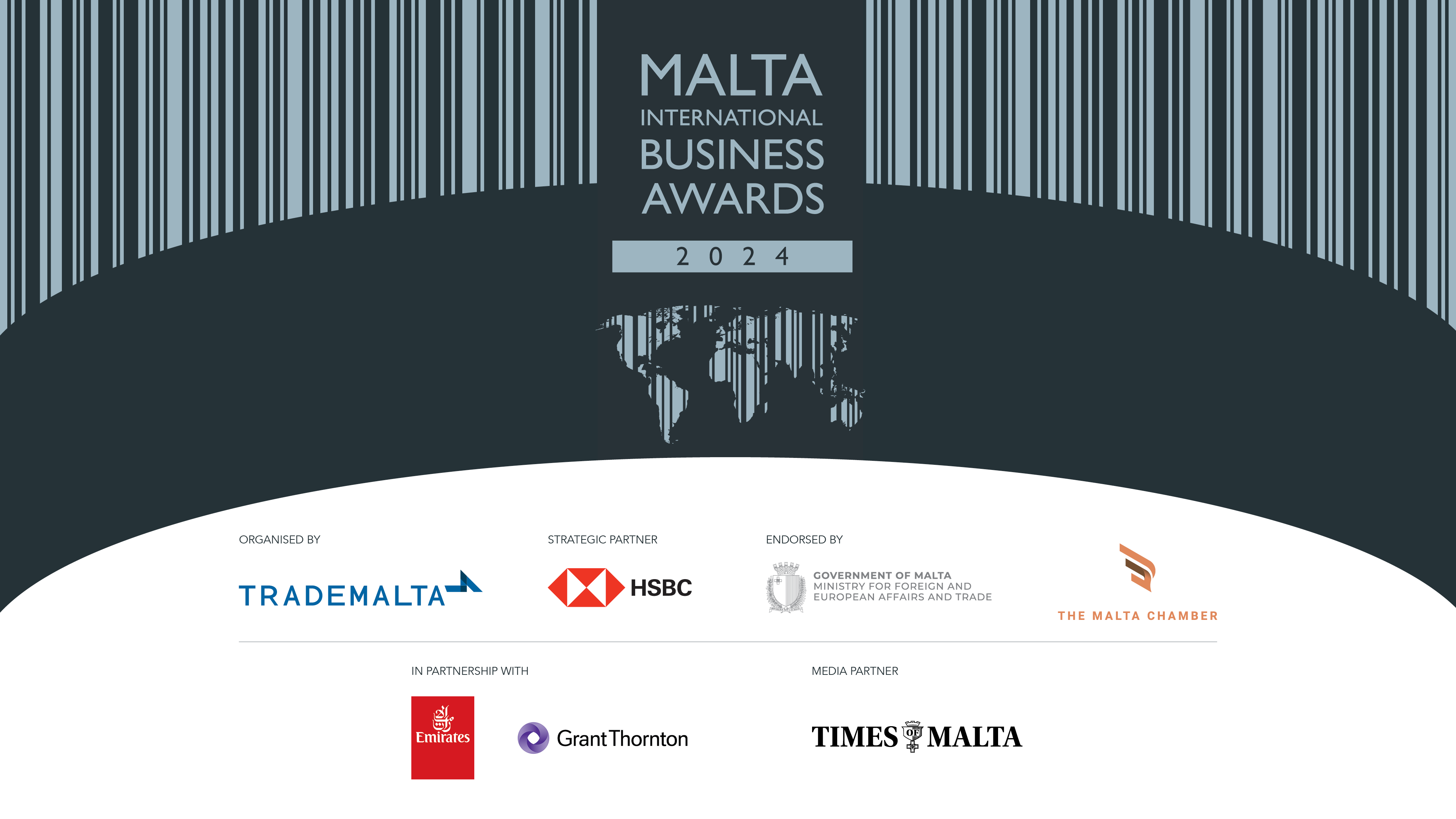
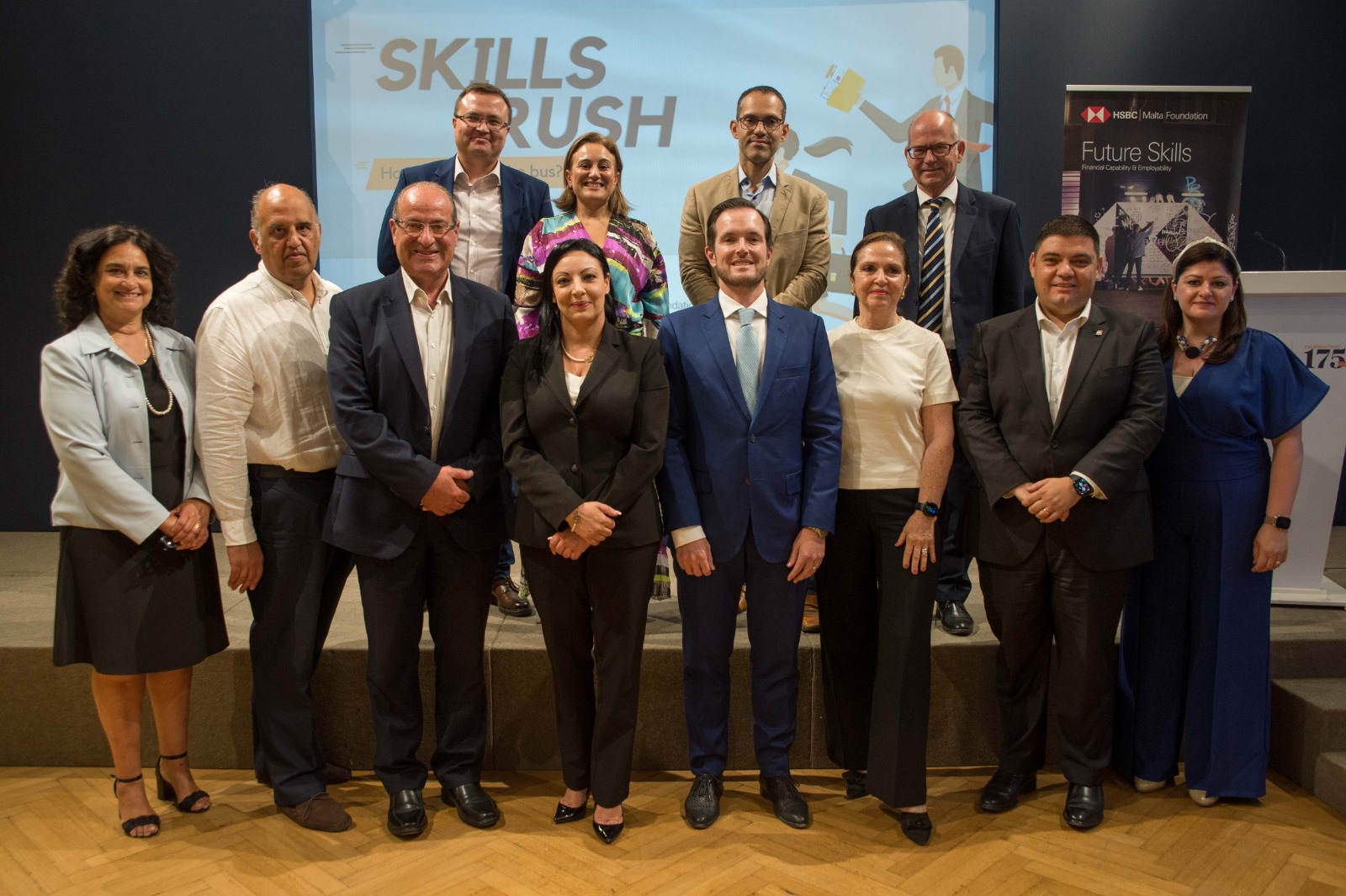
“Education matters greatly for business. It matters for human capital; digitalisation; sustainability; good governance; and for the overarching goal of resilient economic growth. All this is key to maintaining Malta’s international competitiveness,” The Malta Chamber President, Chris Vassallo Cesareo, said in his opening speech during a conference organised in collaboration with HSBC Malta Foundation.
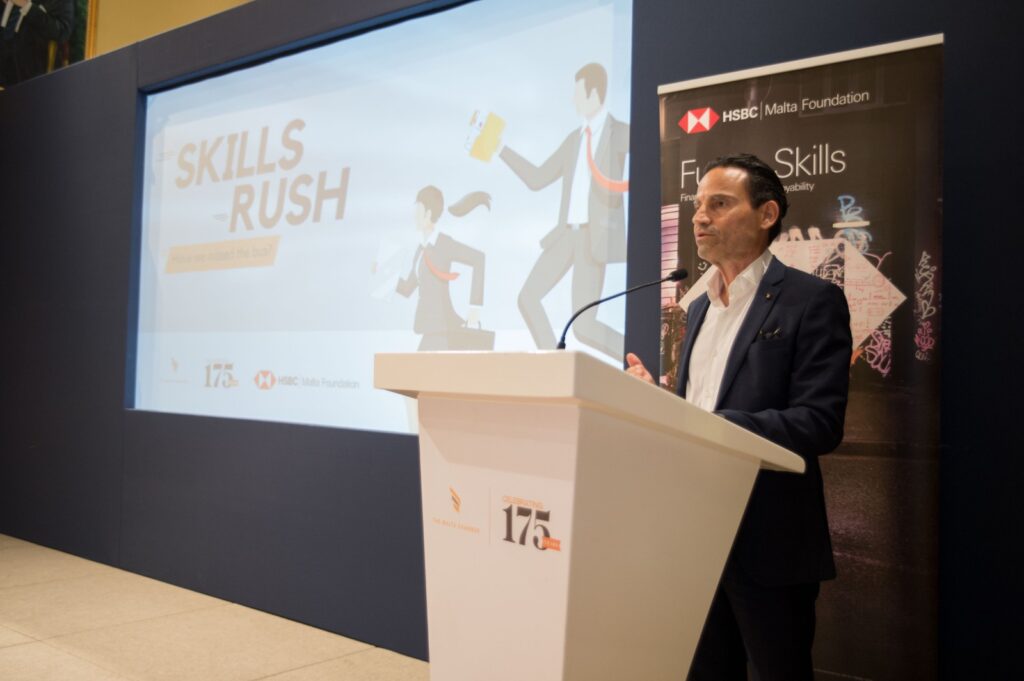
The Malta Chamber of Commerce, Enterprise and Industry organised a conference titled ‘Skills Rush: Have we missed the bus?’ which published the analysis and results of an exercise carried out by Prof. Alexiei Dingli and Prof. Rose Marie Azzopardi in relation to Human Capital and its transition from a local, European and Global context. This study was carried out through the Human Capital Research Project funded by the HSBC Malta Foundation.
The Malta Chamber President said that “we will remain committed to put the Education sector at the forefront of our work. Human Capital has always been one of Malta’s greatest resources and we are supporting this project because we believe in having an optimum workforce that can address future needs.”
Geoffrey Fichte, CEO at HSBC Bank Malta, noted that “given HSBC’s commitment to Malta, we want to raise awareness on an important topic that affects our customers and the community: Future Skills. At HSBC Malta, we are constantly investing in the long-term success of our people and our community. We need to ensure that our people have the skills needed for the jobs of the future. Therefore, we are supporting this 3-year project, which is being endorsed by the Ministry for Education, because it anticipates the skills needed to succeed and ensure Malta’s ongoing competitiveness in the global economy. Together with The Malta Chamber we hope that this project plays a key role in the formation of national policy in this area.”
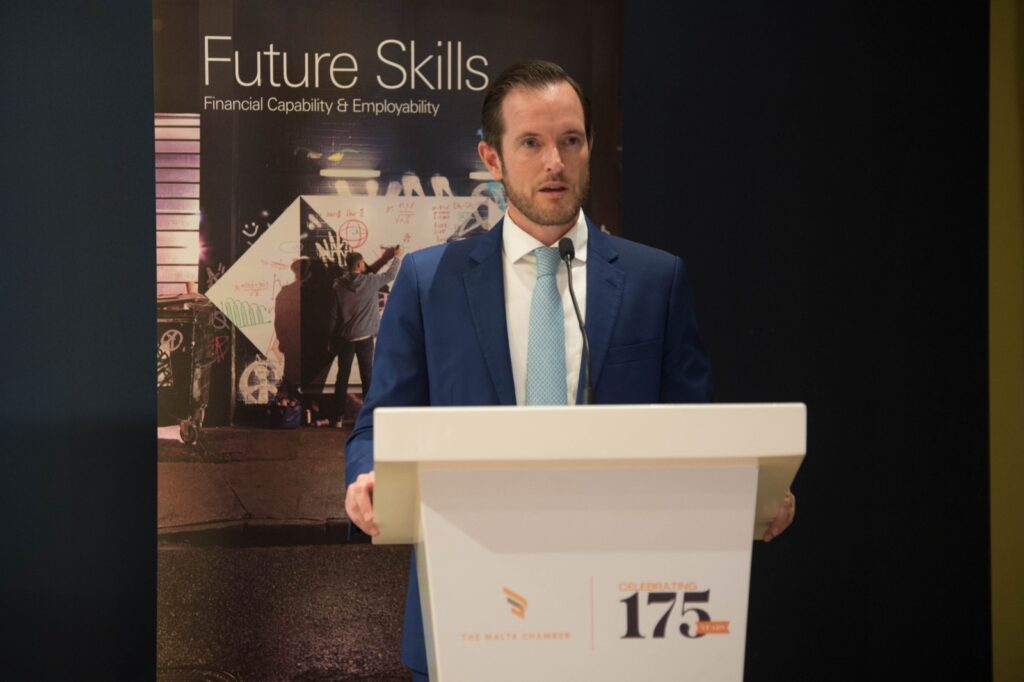
Minister for Education, Sport, Youth, Research and Innovation Clifton Grima in his address said that “we need to equip our students with the necessary skills such as critical thinking and problem solving. The education system should be able to give our children the right tools that the future needs.”
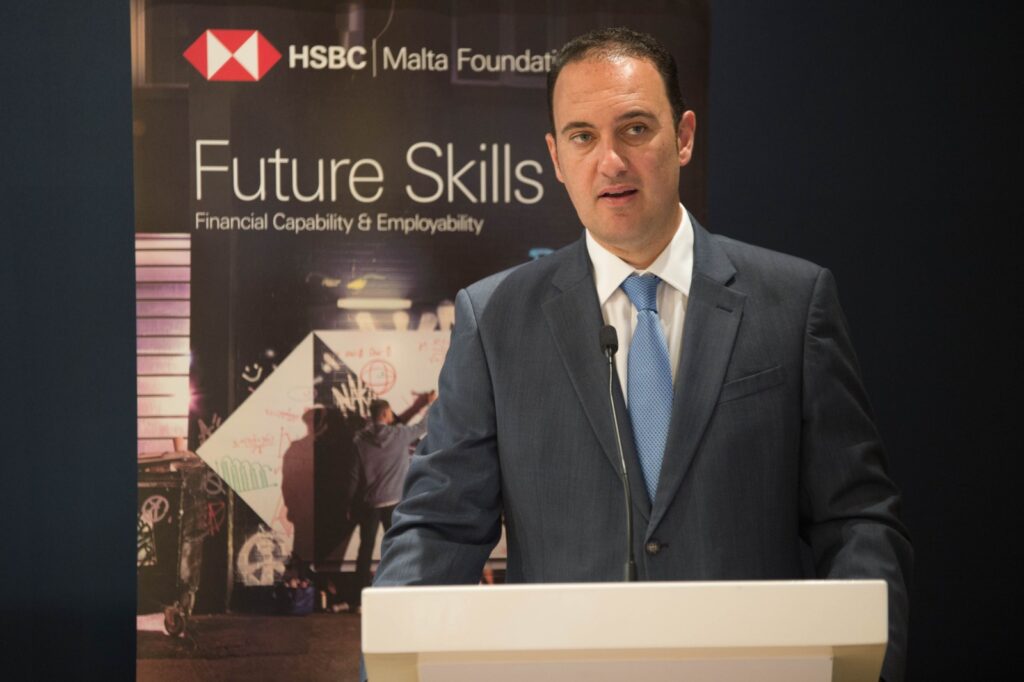
AI Expert Prof. Alexiei Dingli together with Economist Prof. Rose Marie Azzopardi emphasised that in today’s fast-changing world, Malta is ready to make a big difference in education. “We need to create learning plans that are personalised for every student’s unique needs and talents, instead of a one size fits all. Tools like chatGPT can greatly help our learning process. It’s no longer about having access to knowledge but more about knowing how to use it in our tech-driven world. It’s also important to connect school learning with real-world jobs. We want our students not only to learn but to use this knowledge in everyday life. This means getting them comfortable with digital tools and technology from a young age. Malta’s current economic model is unsustainable. We need to focus on quality not quantity, evaluate the high level of skills mismatch in the labour market, aim for a skills anticipation strategy, consider reskilling and upskilling as an ongoing process and work to ensure we implement the strategies, we as stakeholders decide upon together. We need to act before it is too late,” they said.
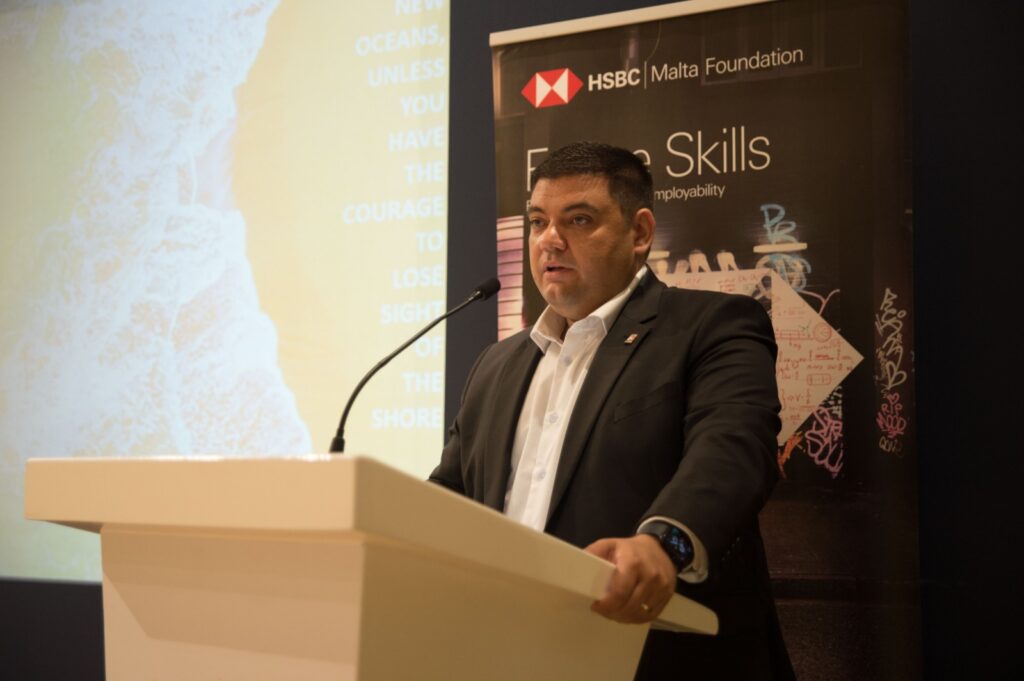
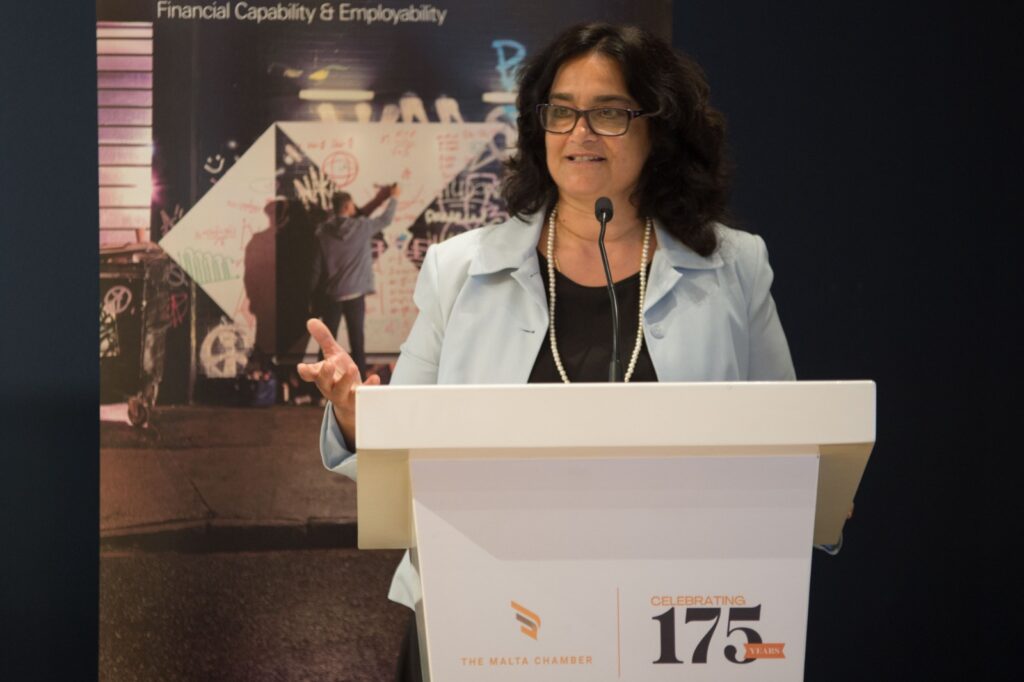
In her closing remarks, Dr Marthese Portelli, The Malta Chamber CEO, said that “our economy depends, directly and intrinsically, on a high standard of education in order to enable us to broaden our intellectual capital through successful human resource growth. For this reason, education must be continuous, relevant and attractive. The bottom line in education is not how much money we spend, but on what we spend it and how we spend it.”
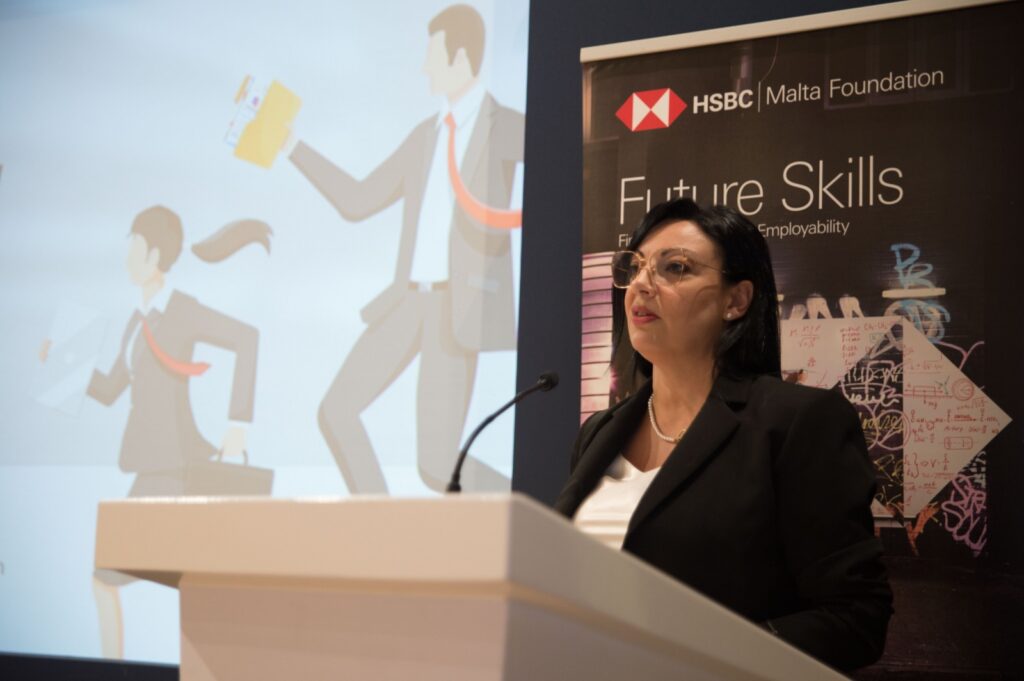
...
...


...

...
